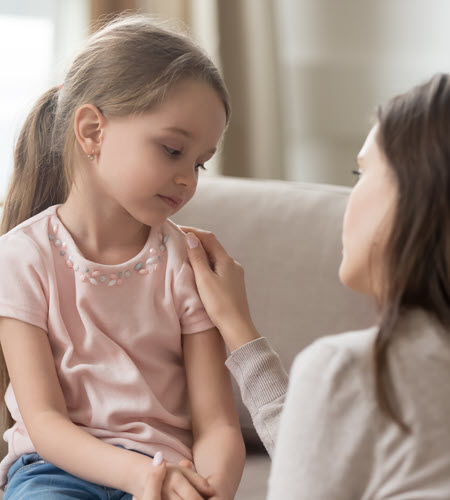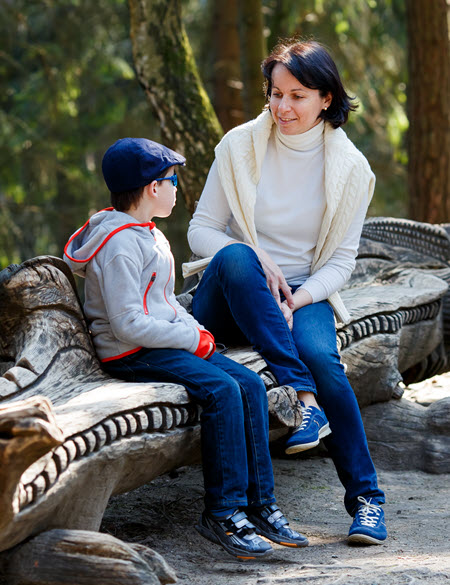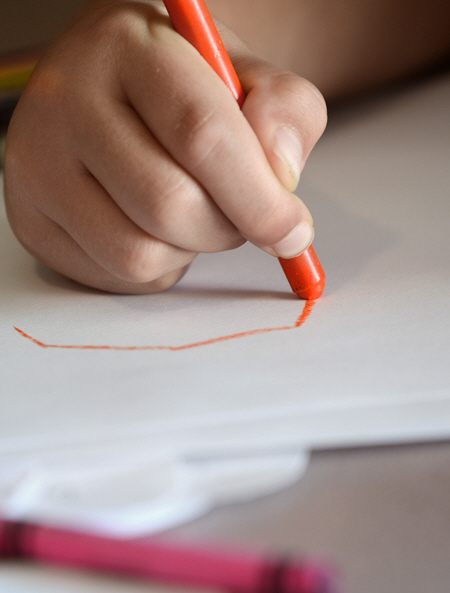 You want nothing but the best for your child…
You want nothing but the best for your child…
… but they’re struggling.
There’s so much to navigate during childhood, like friend groups, doing more things on their own, trying new sports or activities, and increasing school demands. Sometimes kids get stuck and need help to make their way through.
Or maybe your child has experienced some tough challenges in life, like moving or a new school, being left out of peer groups, having attention or learning problems, losing someone close to them, or going through something traumatic.
In the wake of these experiences, children can become completely overwhelmed, and their distress can manifest itself in so many ways:
Maybe your child feels afraid and clings to you for comfort, especially at bedtime.
Or your child has developed new fears, and they won’t budge despite your reassurance that there’s nothing to fear.
Has your child been withdrawing from peers and activities or lacking the confidence to try something new?
Maybe your child appears sad, cries easily, and gets down on himself.
Is your child having trouble concentrating, avoiding school, or falling behind in academics?
Maybe your child is irritable and gets upset when you make the simplest of requests.
Or maybe your child is overly sensitive and critical of herself when she makes mistakes.
 I know it hurts watching your child go through this.
I know it hurts watching your child go through this.
You love your child so much, and you can’t stand to see your child experiencing these difficulties.
You worry constantly, not just about what they are going through now, but what it means for their future. Your mind circles back and forth about what to do for your child. You feel helpless.
You end up comparing your child to others and wondering what has gone wrong.
You have tried all you know to help…
… but it’s not working the way you’d like.
You are in tune with your child’s needs and have addressed your child’s other challenges with success.
You’re not sure why you can’t figure out what to do this time. You’ve tried talking with your child about the issues, but not much has changed. Or you’ve confided in close friends, but they don’t have any answers either.
You are feeling like you have failed your child in some way.
I know you’re exhausted from the burden of trying to make things better on your own. You need help.
 I’ll partner with you to support your child’s emotional well-being.
I’ll partner with you to support your child’s emotional well-being.
First, I’ll meet with you to learn about your child’s struggles, and you can meet me before I meet your child. It is important that you feel comfortable with your child’s therapist. We may meet several times so I can learn as much as I can about your child. The more I know upfront, the more help I can be.
I’ll teach you how to handle your child’s unique challenges so you can feel more confident in your parenting. Depending upon your child’s needs, I can:
- Show you ways to respond to your child’s emotions that will help your child feel heard and less likely to act out
- Teach you ways to support your child to face fears and anxieties gradually
- Help you figure out what sets off your child’s meltdowns, so you can help keep them from happening all the time
- Learn ways to help your child calm down when they are angry, upset, or refuse to do what you ask
- Help you devise a reward system to encourage rule-following or adjustments to new routines
When your child feels heard and supported, you will both feel more connected to each other. After all, you are the most crucial person in your child’s life.
I also partner with parents to explore what’s beneath the surface. For example, if you (or other family members) are going through a difficult time, it may be affecting your child despite your best attempts to shield them.
Family stress tends to trickle down, and anxiety can be contagious, particularly with sensitive children. By working together to find ways to reduce family stressors, your child’s symptoms may subside more quickly.
 Children don’t sit on the couch and start talking about their problems.
Children don’t sit on the couch and start talking about their problems.
Children express themselves more easily through play. It’s how they make sense of their world and communicate.
During play therapy, the child takes the lead, and I follow. I have toys, games, and art supplies in my office for children to play with. On the outside, it might look like we are “just playing.” But we’re not.
A child’s play is a lens into their inner world. I pay close attention to patterns in their play. This puts me in a unique position to help. I give language to their expressions, help them connect their feelings to their behaviors, and provide a safe space for them to rework tough experiences.
Children love play therapy! It doesn’t feel like school or work. It’s much less intimidating than just talking, and children benefit in so many ways. It helps them learn to put words to their feelings, build confidence, and improve their ability to cope with problems.
Depending on your child’s needs, play therapy can also be coupled with some practical coping skills.
I’m here. Let me help you and your child…
As a therapist who works with both children and adults, I understand that when childhood issues go unaddressed, they often surface in adulthood.
Therapy for your child can be a gift that lasts a lifetime.
If your child is struggling and you need help, please reach out today: (513) 289-1092.

